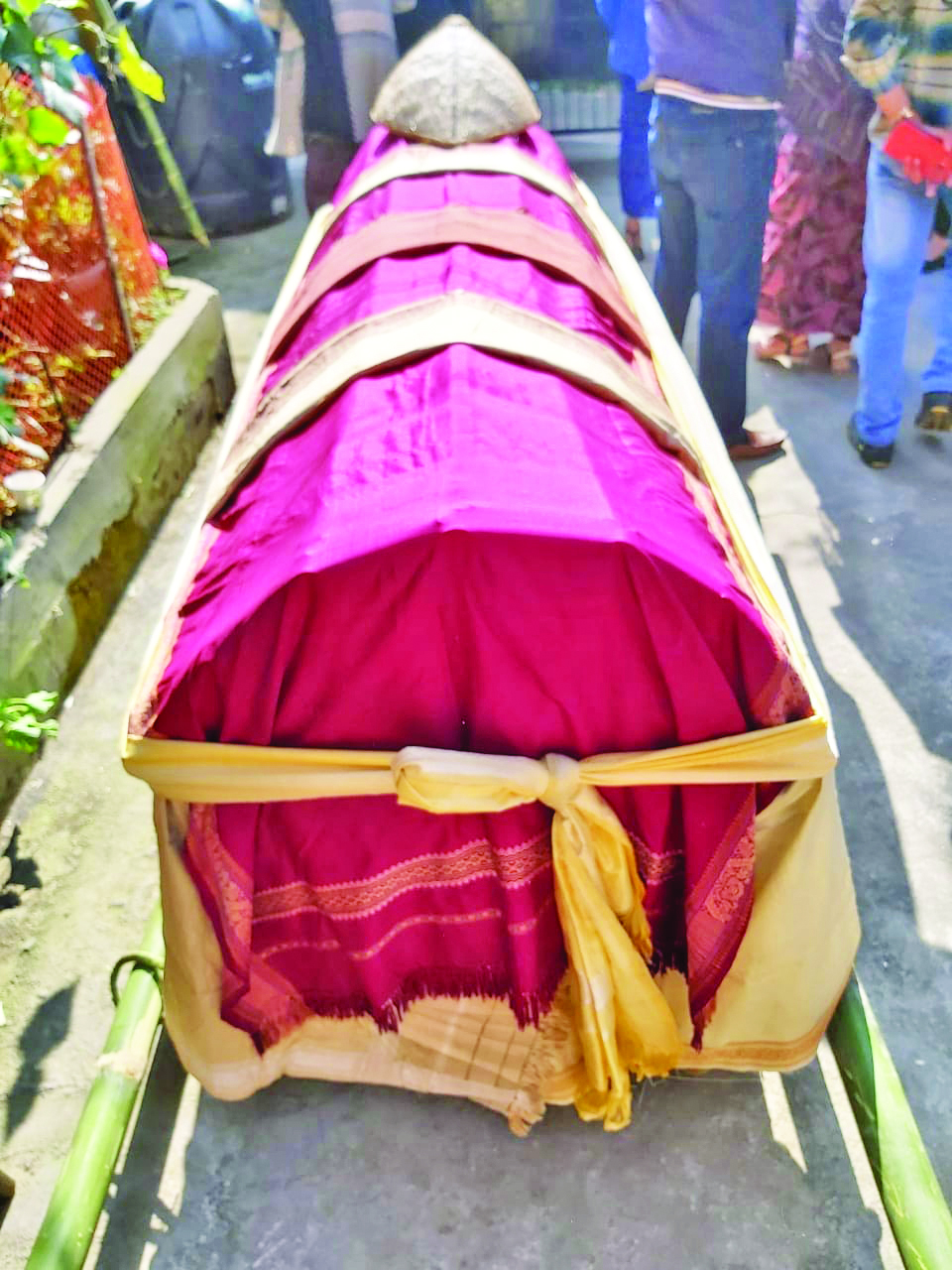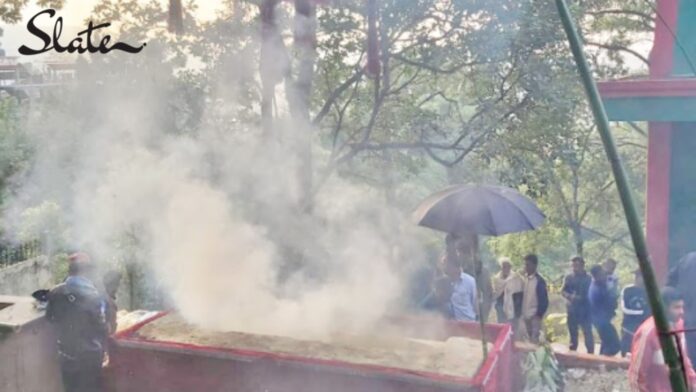By Abha Anindita
For most people, the concept of death triggers a variety of reactions. A few people may be fascinated with it, but most feel a sense of overwhelming fear. The human experience prefers to catalogue events and have answers, and death is the great unknown.
Different cultures have a variety of ways to honour the dead. The earliest civilisations were characterised by unique burial forms. Some preferred to bury, while others preferred cremation – the underlying idea revolved around being respectful towards the departed ones.
This echoes in Meghalaya as well. While Khasi Christians bury the dead, the Seng Khasis cremate the deceased in crematoriums meant exclusively for them. They believe that the soul then travels to an unknown land to become one with God.
Here too, stories of the supernatural abound… usually souls who return to the mortal coil and make their presence known.
K.S. Marbañiang, (lovingly known as Bah Deng Kwor) narrated his experiences as he sat in his dimly lit room in his office at Rynjah… just back from conducting a purification ritual following the cremation. He is a Riew-san (priest) from the Khasi community and is the one who leads all important rituals conducted by the Seng Khasis.
“After the cremation is over, we have to do purification rituals in the house of the deceased. If not conducted according to the rules and regulations, there are chances that the soul will not be able to travel to the unknown land and rest in peace,” he said.

The Seng Khasis cremate the body and all the rituals are performed by the male members of the family, uncannily similar to the rituals performed in Hinduism. The one difference is that the body is kept for three days in presence of the family members, and cremated on a pyre on the third day.
After the funeral pyre settles into ashes, a family member of the departed soul goes to the cremation site. If footprints are found, then the soul is stuck and unable to travel to the destination. They (Seng Khasis) believe that footprints mean that the soul wants to come back into the mortal world.
Synorplin Marbañiang, a researcher and Khasi author, added, “If footprints are found in the ashes in the cremation ground, it means that the soul is not at peace. There are some attachments in the mortal world that it is unable to let go of. This happens mostly in cases of unnatural deaths. In that case, the Riew-san has to perform some different purification rituals in the house of the deceased so that the soul cannot enter back.”
After the cremation is over, the family experiences certain phenomena at night, usually beyond any logical explanation. Synorplin narrated her personal experience in this regard. “After the demise of my father and the subsequent cremation of his body, we returned home. We heard the almirah creak open… significant because it was usually accessed by my father. It was his way of telling us that whatever money we spent, we should take it out from the almirah (where he kept his savings) and give it to all the stakeholders.”
“That was not the end. He had a favourite chair that I placed on the terrace. We heard him moving on the steps leading up to the terrace… when I checked in the morning, the chair was not placed in the same direction I placed it in,” she added.
The rational mind questions such occurrences. Some brush it off, saying, it’s the mind playing tricks, while others agree that not everything can be answered since it cannot be viewed logically.
What, then, is delving into the unknown?
(Bah) Deng Kwor shared an incident while highlighting the rituals. “The purification process includes rice and egg. During the ritual, I request nature to let me become one with the lord. Yes, I usually sense things then. Let me tell you about a family residing in a renowned locality of Shillong; a member had committed suicide.”
“While conducting the process, I saw that seven people in the family had previously committed suicide. This was the eighth death. On enquiring about this, they agreed, shocked that I knew about it. Once I completed the rituals, I told them to move away, as the house was eerie,” he added.
Lost in his thoughts, he went on, and said, “I don’t necessarily fear these phenomena because it is my duty and responsibility to protect families. My entire focus is always on the purification process.”
Stories of feeling the presence of loved ones after their demise are not unheard of; it goes beyond religion, culture and ethnicity. For the Seng Khasis, certain markers determine the presence – they keep sand outside their homes – they believe the soul returns one last time, to pay a visit after the cremation. Instances of footprints on the sand have also happened.
Lifornia Kharkamni, a Seng Khasi, recounted her experience when her mother passed away. “After we cremated her, we heard sounds of utensils back at home, like she was just here. We could hear the footsteps and the sound of the door, but that was just for one day. We never heard it again.”
Khasi Christians also keep the body of the deceased for three days. The night they are done with the burial, they keep all the doors and windows of the house open. The family members also stay awake the entire night; they believe that the soul will visit before finally resting in peace.
For Hindus, the funeral rituals last from ten to thirteen days. The cremation is usually done on the same day as the death, but the purification ritual mostly happens on the thirteenth day, otherwise also called Preta-karma (or soul purification). It is popularly believed that the soul returns between these days and, on completion of the rituals, reaches the destination.
It is widely believed that the individual, who is sick for a long time, usually senses his/her demise is nearing. Synorplin added, “One common thing I have seen in all my years of research is something, which again, lacks any deduction… if a person’s demise happens while he/she is sleeping and somebody is sleeping next to him/her, they never get to sense it. They might be light sleepers, but on that particular day, they cannot wake up because they cannot see the soul passing onto the unknown land.”
Many such instances exist; there’s no dearth of stories that highlight the element of supernaturality surrounding the afterlife. Whether or not we believe, it is hard to possibly turn away from phenomena that defy rational explanations.
What remains are more questions, rather than answers, to prove the existence of the afterlife once and for all.


